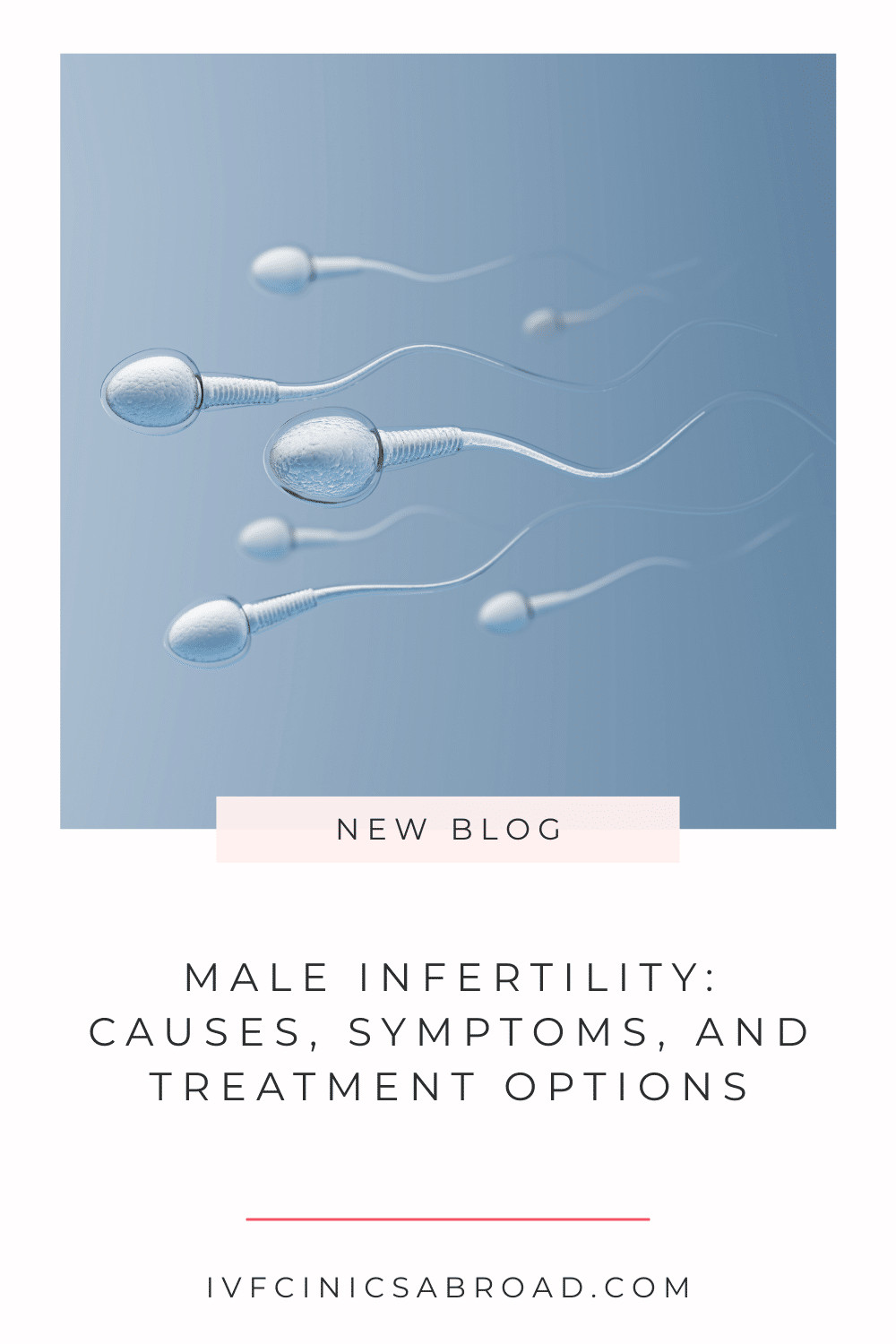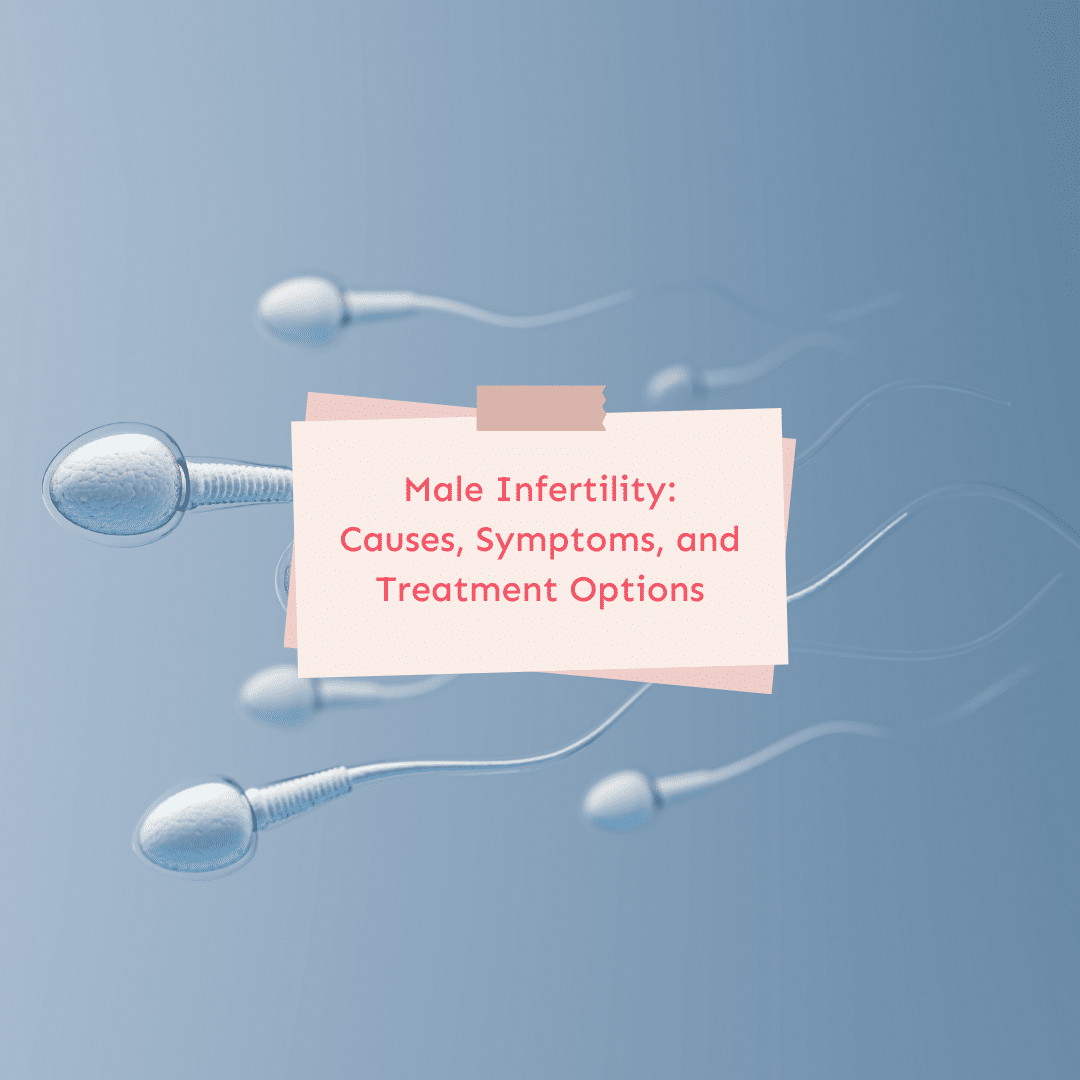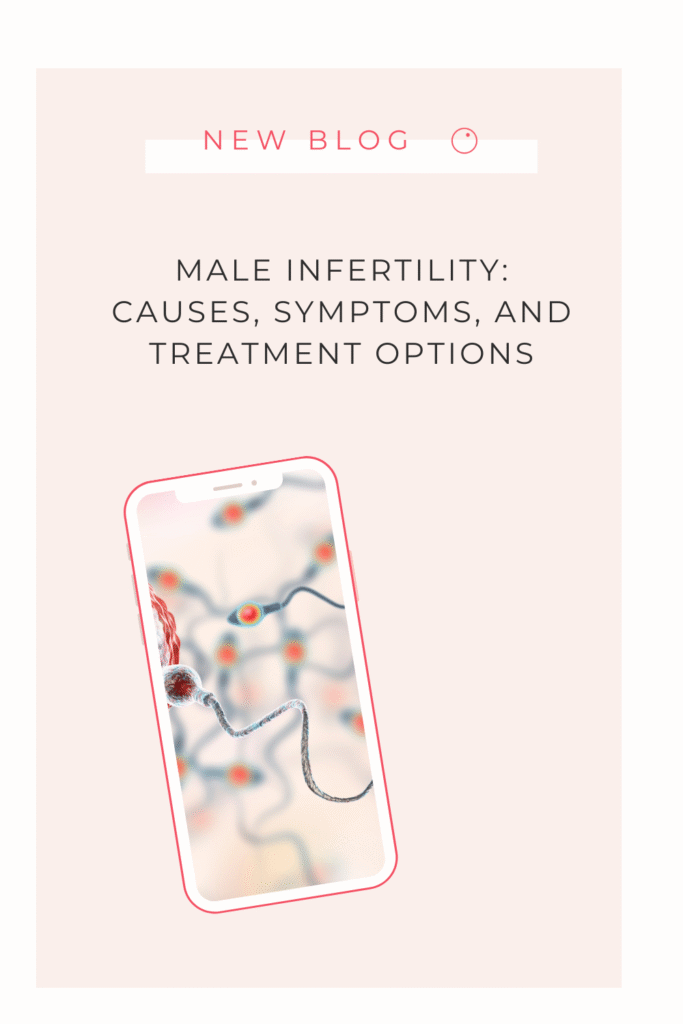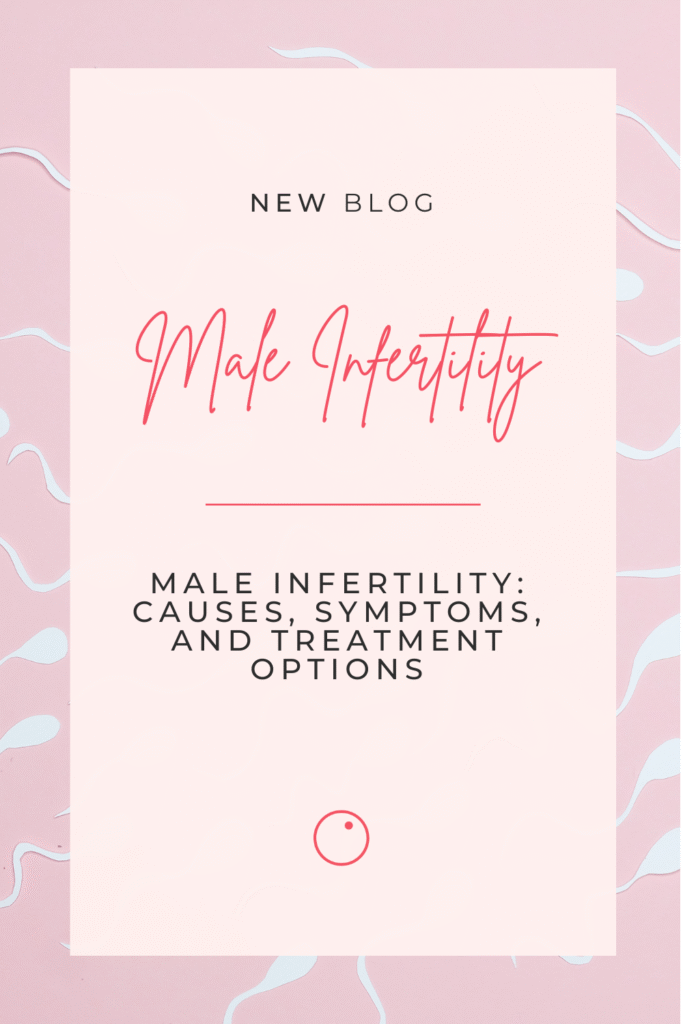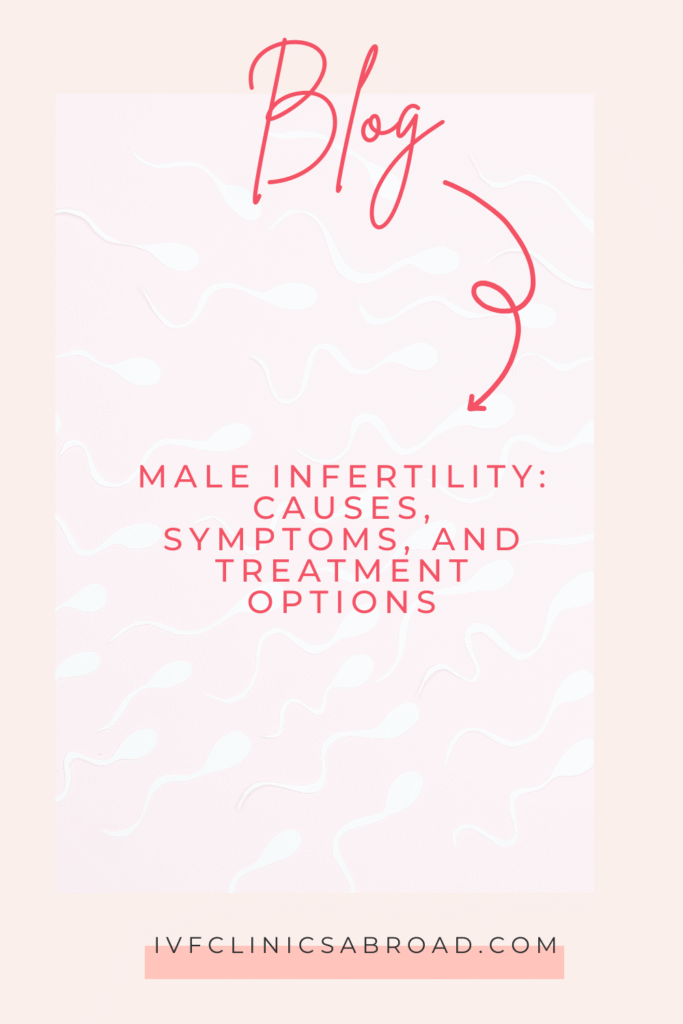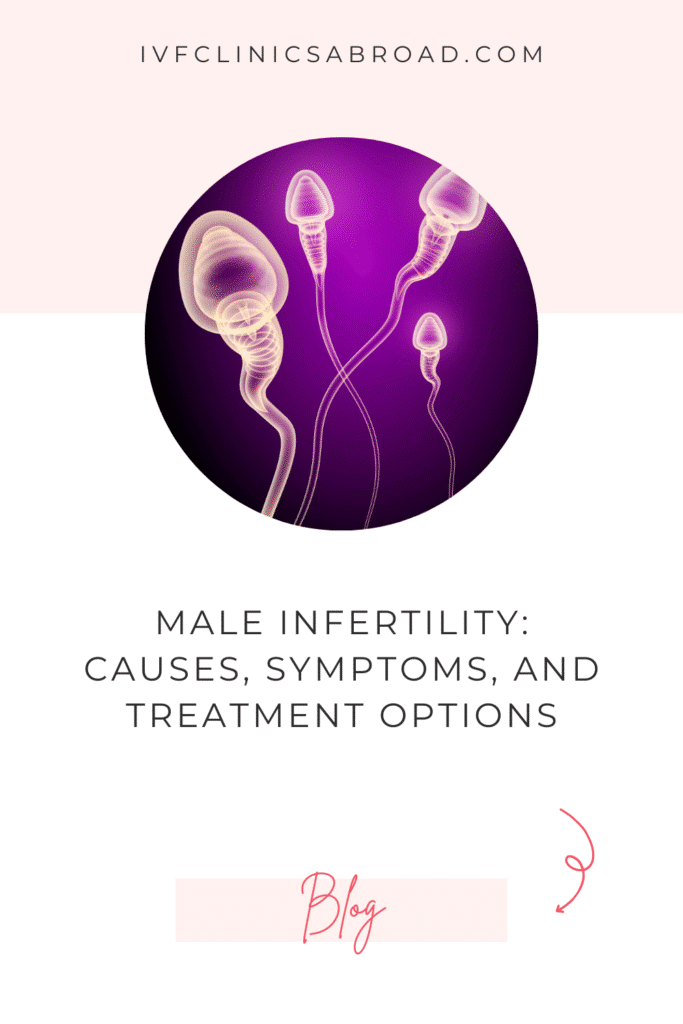Male Infertility: Causes, Symptoms, and Treatment Options
Male infertility is more common than many people think. In fact, difficulties with conception are not only linked to female factors – around half of all infertility cases involve men. When a couple struggles with the desire to have children, it can be surprising to learn that problems in the male reproductive system may play a key role.
Unlike other health conditions, male infertility often shows no obvious symptoms. An infertile male may feel perfectly healthy, yet changes in semen quality or sperm production can affect fertility. This is why diagnosis is essential: only by running a semen analysis and other tests can specialists find the cause and offer treatment options.
For many men, opening up about these challenges is not easy. Talking about issues related to the testicle, scrotum, or ejaculation can feel uncomfortable. Yet understanding the causes of male infertility and knowing that effective therapies exist is the first step towards hope.
This article explains the symptoms and causes of male infertility, the most common diagnostic tests, and the treatment options available today – including assisted reproductive technologies such as IVF and ICSI. It also addresses the emotional aspects, because male fertility problems affect not only the body but also the relationship and self-confidence of those involved.
Definition and relevance
Male infertility refers to a man’s inability to achieve pregnancy with his partner after a year of regular, unprotected sexual intercourse. While fertility problems are often associated with women, infertility in men is just as common. Studies show that male factors contribute to nearly half of all infertility cases worldwide.
The condition can be temporary or permanent, and it may result from issues within the male reproductive system such as low sperm count, poor semen quality, or blockages in the genital tract. Understanding the main causes of male infertility is important because many can be treated successfully with modern fertility treatment.
Emotional aspects for men
For many men, learning that they are infertile is a shock. Society often links masculinity with the ability to father children, so challenges with sperm production or ejaculation can affect self-esteem deeply. Men may feel isolated, as infertility is commonly seen as a women’s issue, and they might avoid talking about their struggles even with close friends or family.
This emotional burden can also place strain on relationships. Feelings of guilt, frustration, or shame are common, especially when a couple’s desire to have children is unfulfilled. Recognising these psychological aspects is just as important as addressing the physical causes, since emotional wellbeing plays a key role in coping with fertility problems and moving forward with treatment options.
Infertility in men
Prevalence and statistics
Infertility in men is a global health issue that affects millions of couples every year. Around 15% of couples worldwide experience difficulties conceiving, and in nearly 50% of these infertility cases, a male factor plays a role. This means that problems in the male reproductive system are just as significant as female causes.
The prevalence varies between countries, but experts agree that the number of infertile men is rising. Lifestyle changes, environmental toxins, and delayed parenthood contribute to this trend. A semen analysis is often the first test to uncover low sperm count, reduced motility, or other abnormalities linked to infertility.
Differences compared to female infertility
Male and female reproductive systems contribute equally to the ability to conceive, yet the challenges differ. In women, fertility often declines with age due to a decrease in egg quality and quantity. In men, sperm production usually continues throughout life, but semen quality can decline because of factors like varicocele, hypogonadism, or damage to the testicles.
Another key difference is the visibility of symptoms. While women may experience irregular cycles or hormonal changes, an infertile male might have no signs at all until pregnancy does not occur. This is why early diagnosis, specialist consultation in urology, and awareness of the main causes of male infertility are essential to find the right treatment options for each couple.
Symptoms and causes of male infertility
Common symptoms
Male infertility often develops silently. In most cases, the only sign is the inability to achieve a pregnancy despite regular unprotected sexual intercourse. Unlike other health conditions, there are usually no obvious physical symptoms that alert a man to fertility problems.
Some men may notice changes such as reduced sexual desire, erectile dysfunction, or difficulties with ejaculation. Swelling or discomfort in the scrotum, pain in the testicle, or the presence of enlarged veins in the scrotum may indicate conditions like varicocele. Hormonal imbalances, including low testosterone, can also cause changes in energy, mood, or body hair growth.
Causes male infertility
The causes of male infertility are diverse and can affect different parts of the male reproductive system. Problems with sperm production are one of the most common causes. Low sperm count, poor motility, or abnormal sperm cell shape can make it difficult for healthy sperm to fertilise an egg.
Blockages in the genital tract, such as damage to the vas deferens or ejaculatory duct, can prevent sperm from reaching the ejaculate. Testicular conditions like varicocele, hypogonadism, or genetic disorders such as Klinefelter syndrome may also reduce male fertility. Infections of the epididymis or sexually transmitted diseases can further damage the reproductive system.
Lifestyle and environmental factors also play an important role. Excessive use of anabolic steroids, smoking, alcohol consumption, obesity, or chronic stress can reduce sperm quality. Exposure to toxins, heat, or radiation may decrease male fertility over time. In some cases, infertility can be caused by a combination of many causes, making it necessary for specialists to carry out detailed lab tests and find the cause.
“Male infertility is not a sign of weakness – it is a medical condition, and with the right diagnosis and treatment, many men can become fathers.”
Nathalie Wiederkehr
Diagnosis and tests
Spermiogram and laboratory analysis
The most important tool in diagnosing male infertility is the semen analysis, often called a spermiogram. This test measures several factors: sperm count, motility, and morphology. It also looks at the volume of ejaculate and overall semen quality. A low sperm count or reduced motility may explain why conception has not taken place.
In addition to semen analysis, doctors may perform blood tests to check hormone levels such as testosterone, follicle-stimulating hormone, and luteinising hormone. Abnormalities in these results can indicate problems with the pituitary gland or hypogonadism. In some cases, a lab test may also include genetic testing to detect conditions like Klinefelter syndrome or chromosome abnormalities linked to infertility.
Urology and specialist examinations
If initial tests show abnormalities, a consultation with a specialist in urology is usually the next step. The urologist can carry out a physical exam to assess the testicles, scrotum, and penis, checking for signs of varicocele, blockage in the vas deferens, or other issues in the male reproductive tract. Imaging such as ultrasound can reveal enlarged veins in the scrotum or structural changes in the genital tract.
Further diagnostic procedures may include examination of the epididymis and glands that contribute to semen production. In rare cases, a testicular biopsy may be recommended to study sperm production directly in the testicular tissue. With these combined methods, doctors can find the cause of male infertility and provide clear treatment options tailored to the patient’s situation.
Unexplained infertility
Possible hidden factors
In some cases, all routine tests come back normal, yet a couple still cannot achieve pregnancy. This situation is called unexplained infertility. For the man, semen analysis may show a normal sperm count, good motility, and healthy sperm morphology, but conception does not occur.
Possible hidden factors include DNA fragmentation in sperm cells, oxidative stress that damages the male reproductive system, or subtle hormonal imbalances that are not visible in standard blood tests. Even minor infections in the genital tract or problems with the ejaculatory duct may reduce sperm quality without clear signs. These issues can be linked to infertility even when all standard examinations appear normal.
Current research approaches
Modern research is trying to uncover why unexplained infertility occurs and how to improve diagnosis. Advanced lab tests now look beyond the number of sperm and focus on genetic stability, sperm cell function, and the role of the pituitary gland in regulating hormones.
New imaging techniques and molecular studies help to identify abnormalities that were once invisible. In addition, scientists are studying how lifestyle factors, such as exposure to toxins, stress, or the use of anabolic steroids, might contribute to unexplained infertility. Assisted reproductive technology like IVF or ICSI can often bypass these hidden problems, but the long-term goal of research is to find the cause and treat it directly.
Treatment options
Lifestyle and medical therapy
For many men, small lifestyle changes can improve fertility. Reducing alcohol and nicotine, maintaining a healthy weight, avoiding excessive heat to the scrotum, and managing stress are all factors that can help increase sperm production and semen quality. Limiting the use of anabolic steroids or other medications that reduce sperm count is also important.
Medical therapy may include hormone treatments when low testosterone or hypogonadism is diagnosed. If infections in the epididymis or genital tract are present, antibiotics may be prescribed. In some cases, surgery is needed to repair a blockage in the vas deferens or to treat varicocele by closing enlarged veins in the scrotum. Treatment may include these targeted interventions as well as counselling to support emotional wellbeing.
Assisted reproductive technologies
When natural conception remains difficult, assisted reproductive technology offers a wide range of solutions. In vitro fertilization can help couples overcome fertility problems by combining egg and sperm outside the body. Intracytoplasmic sperm injection, also known as ICSI, allows a single sperm to be injected directly into an egg, which can be especially useful for men with very low sperm count or reduced motility.
If sperm cannot be found in the ejaculate, doctors may retrieve them directly from the testicle or epididymis and then use them for IVF or ICSI. Other advanced options include intracytoplasmic sperm injection with a single sperm or newer lab techniques designed to select the healthiest sperm cell. With these methods, many infertile men are able to achieve fatherhood, even in cases once thought untreatable.
Surgical options
Chirurgical procedures can play an important role in treating male infertility when a physical problem is identified. A common intervention is varicocele repair, where enlarged veins in the scrotum are treated to improve sperm production. Blockages in the vas deferens or ejaculatory duct may be corrected through microsurgery, restoring the natural flow of semen.
Another option is testicular or epididymal sperm retrieval (TESE or MESA), which allows specialists to obtain sperm directly from the testicle or epididymis when no sperm are found in the ejaculate. These procedures are often combined with assisted reproductive technology and can make conception possible even in complex infertility cases.
Emotional and relationship aspects
Psychological impact
Male infertility is not only a physical condition but also a heavy emotional burden. Many men feel shocked or ashamed when they learn that problems with sperm production or semen quality are the reason for their partner’s difficulty in conceiving. Because infertility is commonly viewed as a women’s issue, men often feel isolated and may avoid discussing their struggles.
Feelings of guilt, loss of self-esteem, and frustration are common. Some men associate fertility with masculinity, and a diagnosis of infertility can shake this self-image. Psychological support can therefore be just as important as medical treatment, helping men cope with stress, anxiety, and the emotional effects of fertility problems.
Communication and support
Infertility affects both partners, and open communication is essential to reduce tension within the relationship. Honest discussions about the desire to have children, treatment options, and emotional fears can help couples face challenges together rather than separately.
Professional counselling and support groups may also play a role. They create safe spaces where men can share their experiences and realise they are not alone. With mutual support and professional guidance, couples are better prepared to make decisions about fertility treatment and to strengthen their relationship while navigating the challenges of male infertility.
Conclusion
Key takeaways
Male infertility is a widespread condition that contributes to nearly half of all infertility cases. Often there are no clear symptoms, and many men only discover the problem after months or years of trying for a pregnancy. The main causes of male infertility can include low sperm count, poor semen quality, hormonal imbalances, or structural issues in the reproductive system. Lifestyle factors such as smoking, stress, or the use of anabolic steroids can also decrease male fertility.
Despite the emotional challenges, there are many treatment options. From lifestyle adjustments and medical therapies to surgical options and advanced assisted reproductive technology, modern fertility care offers solutions for most men who face fertility problems.
Outlook and next steps
Infertility can be caused by many factors, but research continues to improve diagnosis and treatment. New lab tests, genetic analysis, and innovative reproductive techniques give hope to couples affected by unexplained infertility. With early diagnosis, specialist support in urology, and the right treatment plan, many men can overcome fertility problems and achieve their desire to have children.
If you are facing difficulties with male infertility and want to read about the causes, treatment options, or assisted reproductive methods such as IVF and ICSI, the best next step is to get professional guidance. My European IVF guide provides clear information on clinics, success rates, and available treatments, so you can find the care that suits your personal situation.
